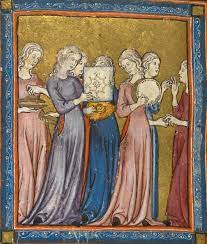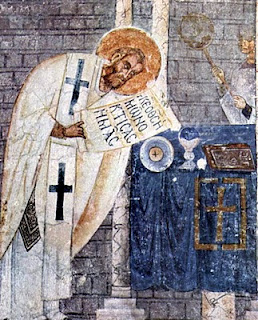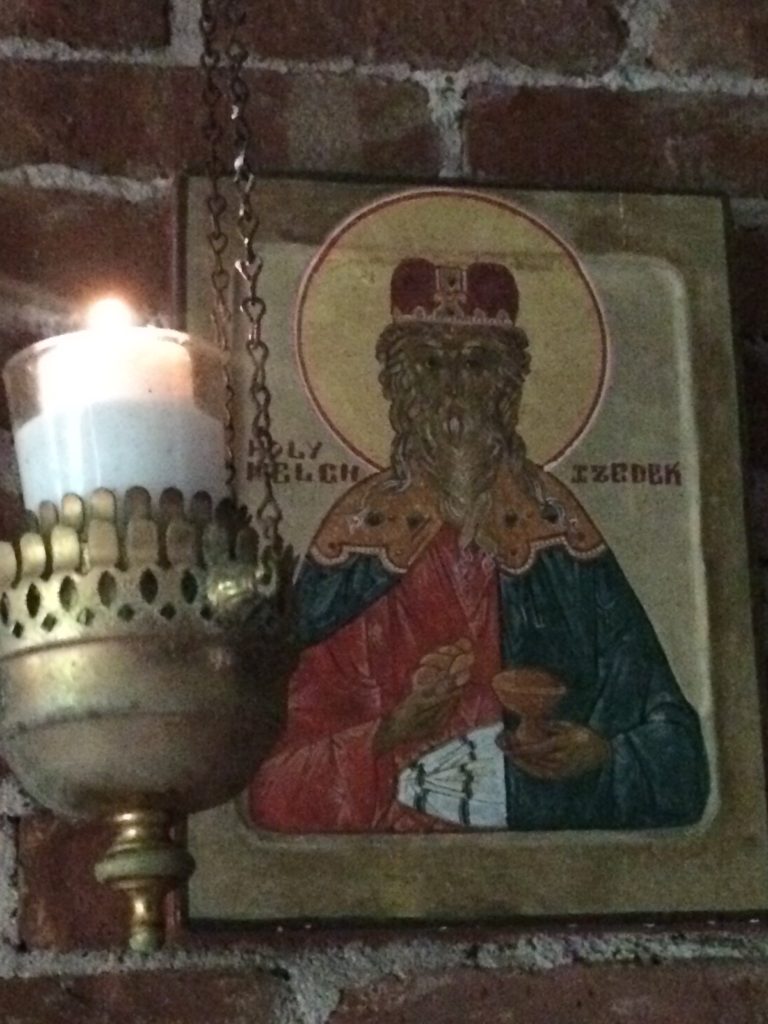
There are allotments of gifts, but the same Spirit; and there are allotments of services, but the same Lord; and there are allotments of activities, but the same God who works all things in all…. to [some], gifts of healings in the one Spirit… to another prophecy…. One and the same Spirit activates all of these, allotting to each one, as he wills, his or her own gifts. (1 Cor. 12:4-11)
The Apostle Paul is concerned with divisions among the members of the parish in Corinth, especially those who said that certain roles in the community or certain spiritual gifts were more important or more valuable than others. He stresses that all spiritual gifts are given by the same Spirit. All are equally valuable, equally important.
Gifts of healing were a major focus of the residents of Corinth. There was an important sanctuary of Asklepios, the Greek god of healing, in Corinth; he was one of the most popular gods in the ancient world and his shrine at Corinth brought many visitors, hoping to be healed, to the city. People hoping to be healed would usually sleep in the god’s shrine, hoping for a miracle or a dream that would tell them how to be healed. Ritual baths were important at the shrine as well. St. Paul tells the Corinthian Christians that all healing is given by the one Spirit of God and the ritual bath of baptism is the true source of authentic spiritual health-salvation. He wants them to realize that Christ and the Spirit of God–not Asklepios–were the true healers.
Prophets and prophecy are often misunderstood as simply being able to foretell the future. Real prophets were keen observers of people and the world. They were skilled preachers and poets. They were focused on God. Because a prophet was all of these–a skilled preacher, a keen observer, focused on God–they were able to speak the Truth when no one wanted to hear it and to describe what would happen if they continued to deny the Truth and the Reality that they were trying to escape. Prophets were also able to describe what God would do because God was faithful and had made certain promises to his people. A prophet might not always realize how True everything they said was–just as a poet says more than they realize in a poem. The prophets in the Corinthian parish were preachers and teachers who were supposed to build up the community, not tear it down and create divisions.
St. Paul and early Christian preachers were eager to remind people that these gifts were given to both men and women, the old and the young. The record of the Acts of the Apostles described how these gifts were manifest among the early Christians in various places. The most important gift, given to all Christians, is the Holy Spirit himself.
Not everyone has all of these gifts –some have one, and others have another. But we all have the the Gift who is himself the one who gives these other gifts; that is to say, the Holy Spirit.
St. Agustine of Hippo, On the Trinity 15.


